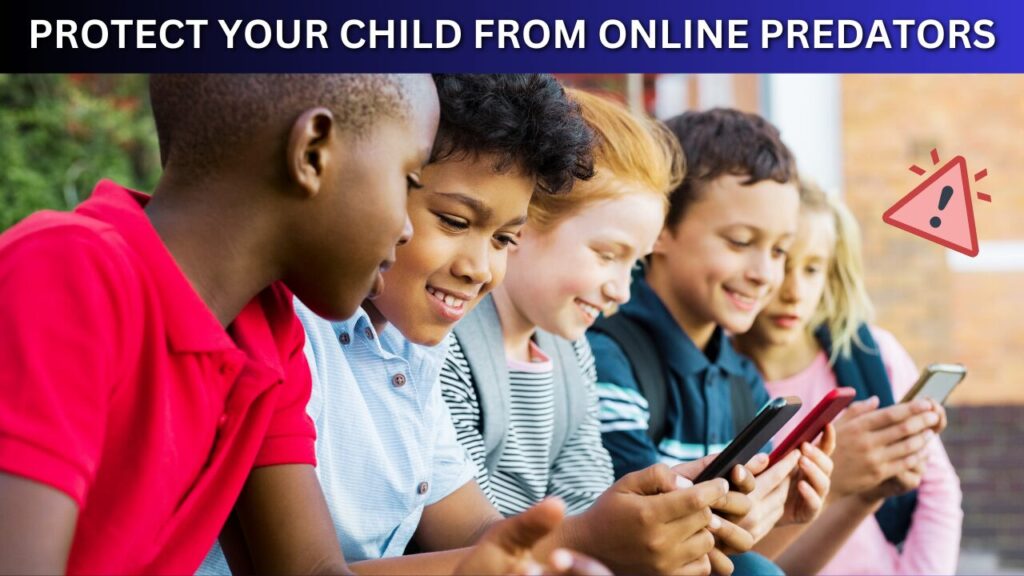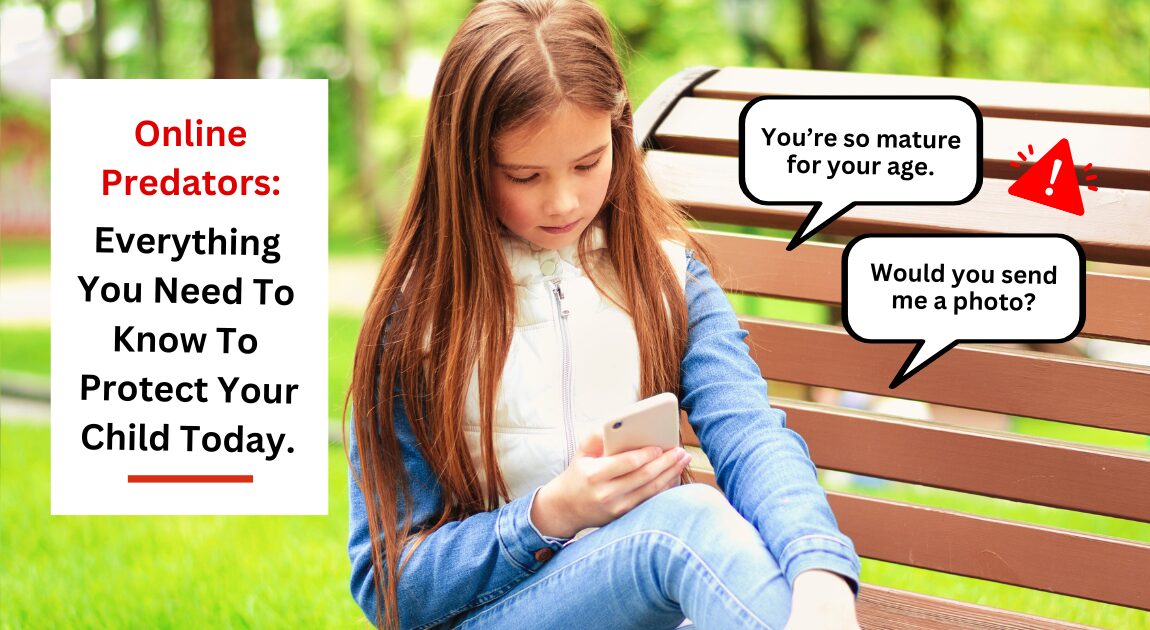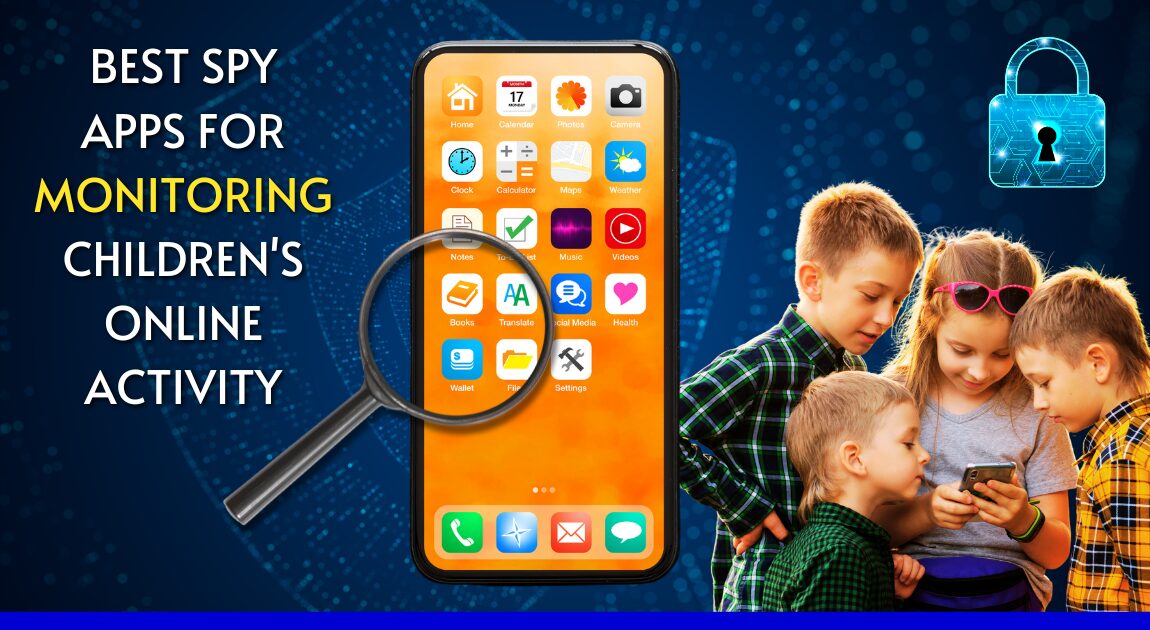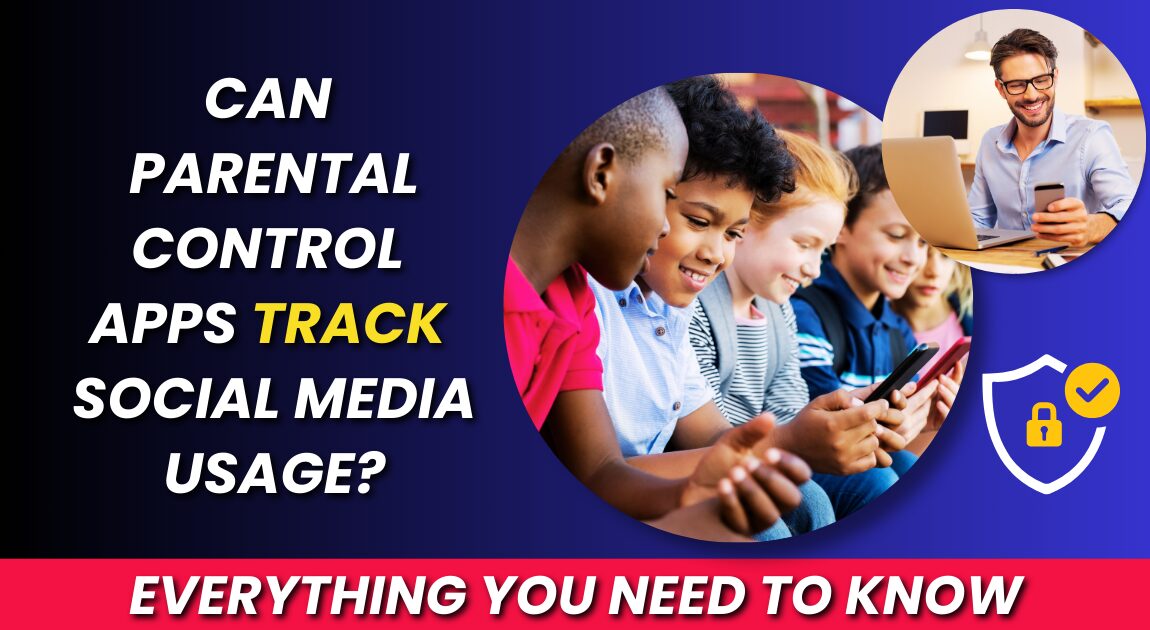In today’s digital age, the internet is an integral part of a child’s life, providing endless opportunities for learning and entertainment. However, it also presents potential dangers, particularly from online predators.
These individuals use the anonymity of the internet to exploit and manipulate children. As a parent, understanding how to protect your child from online predators is important to ensuring their safety.
This article will provide insights and actionable tips for keeping your child safe from online threats.
What Are Online Predators and How Can They Harm Your Child?
Understanding the Tactics of Online Predators
Online predators often employ a variety of tactics to gain a child’s trust. They may pose as someone of a similar age or interest, using social media platforms, chat rooms, and online games to connect with children.
These predators often exploit the innocence and naivety of children, gradually building a relationship with the child. Once trust is established, they may manipulate the child into sharing personal information or engaging in inappropriate activities.
It is essential for parents to understand these tactics to effectively protect children from online predators.
Signs Your Child May Be Targeted by a Predator
Recognizing the signs that your child may be targeted by an online predator is crucial. A child may exhibit secretive behavior, spending excessive time online, especially at night.
They might become withdrawn or upset after using the internet. Other signs include receiving gifts or mail from people they don’t know, or suddenly becoming hesitant to talk about their online activities.
As a parent, it is vital to be vigilant and aware of these changes in behavior to protect your child from online threats. To address these concerns, parents can take several proactive steps to safeguard their children.
First, maintain open and honest communication with your child about the potential dangers of the internet. Encourage them to share their online experiences and reassure them that they can come to you with any worries or suspicious encounters.
Implement practical measures such as setting clear rules for internet usage, including time limits and approved websites or apps. Utilize parental controls and monitoring software to help track your child’s online activities and block inappropriate content.
Educate yourself about the latest apps and social media platforms your child might be using, and understand their features and risks.
It’s also beneficial to teach your child about privacy and the importance of not sharing personal information online, such as their full name, address, school, or phone number.
Empower them to recognize and reject friend requests or messages from strangers, and to report any uncomfortable interactions.
Finally, foster a supportive environment where your child feels confident making smart decisions online. Reinforce the idea that their safety is your top priority, and that taking precautions doesn’t mean you don’t trust them, but rather that you want them to be well-prepared to navigate the digital world safely.
By staying informed and involved, you can help protect your child from online predators and ensure a safer internet experience.
Impact of Predators on Children

The impact of online predators on children can be devastating. Exploited children may suffer from emotional trauma, anxiety, and depression. In severe cases, encounters with sexual predators can lead to long-term psychological issues.
The sense of betrayal and violation can affect a child’s self-esteem and trust in others. Therefore, it is imperative to educate and implement strategies to protect children from online predators, ensuring their well-being and mental health remain intact.
How Can You Protect Your Child from Online Predators?
Establishing Internet Safety Rules at Home
Establishing clear internet safety rules is a fundamental way to protect your child from online predators. Set guidelines on which websites they can visit, the amount of time they can spend online, and the type of information they can share.
Encourage your child to use the internet in common areas of the home, where you can monitor their activities. By setting these boundaries, you create a safe online environment for your child, reducing the risk of interaction with online predators.
Utilizing Parental Control Tools
Parental control tools are invaluable in the fight to protect children from online predators. These tools allow parents to restrict access to inappropriate websites, monitor their child’s online activity, and set time limits for internet usage.
Many internet service providers offer parental control options, or you can use third-party applications. By using these tools, you help protect your child from online dangers, ensuring they have a safe online experience.
Encouraging Open Communication with Your Child
Open communication is one of the most effective ways to protect your child from online predators. Encourage your child to speak to you about their online experiences and any concerns they may have.
By fostering a trusting relationship, your child is more likely to report suspicious behavior and less likely to keep secrets about their online interactions. Regularly talk to your child about the importance of internet safety and the dangers posed by online predators, reinforcing the message that they can always come to you for help.
How to Educate Your Child About Online Dangers?

Discussing the Risks of Sharing Personal Information
Educating your child about the risks of sharing personal information online is very important for their safety. Explain to them why it’s dangerous to share details like their full name, address, phone number, and school information with people they don’t know.
Teach your child to be cautious about the information they post online and remind them that once something is shared, it can be challenging to remove. By instilling these values, you help protect your child from being targeted by online predators.
Teaching Your Child to Recognize Suspicious Behavior
It is important to teach your child to recognize suspicious behavior online. Discuss the tactics predators often use and help your child understand when someone is trying to manipulate or deceive them.
Encourage them to be wary of individuals who ask too many personal questions, or who insist on secrecy. By teaching children to recognize these warning signs, you empower them to protect themselves and stay safe online.
Role-Playing Scenarios to Prepare Your Child
Role-playing scenarios can be an effective method to prepare your child for potential encounters with online predators. Create hypothetical situations where your child might face pressure to share information or meet someone in person.
Practice how they should respond and reinforce the importance of saying no and seeking help from a trusted adult. This proactive approach helps children develop the confidence to handle real-life situations and stay safe online.
What Are Some Tips for Protecting Children from Online Predators?

Monitoring Your Child’s Online Activity
Regularly monitoring your child’s online activity is an essential aspect of protecting children from online predators. Keep track of the websites they visit, the games they play, and the people they interact with.
Encourage your child to share their online interests with you and be involved in their digital life. By staying informed about your child’s online behavior, you can identify potential threats and take action to keep them safe.
Setting Boundaries for Internet Usage
Setting boundaries for your child’s internet usage is another effective strategy to protect them from online predators. Define specific times when they can go online and ensure that these sessions do not interfere with family time or homework.
Encourage offline activities and hobbies to balance their internet use. By setting these limits, you help protect your child from spending excessive time online, which reduces their exposure to potential dangers.
Encouraging Safe Online Friendships
Encourage your child to develop safe online friendships by teaching them to interact only with people they know in real life. Explain the difference between online acquaintances and real friends, and discuss the importance of privacy settings on social media platforms.
By promoting safe online interactions, you help protect your child from forming connections with potentially harmful individuals.
How Can Parents Stay Informed About Online Threats?
Keeping Up with the Latest Online Trends
Staying informed about the latest online trends is crucial for parents to protect their children from online predators. Familiarize yourself with popular apps, social media platforms, and online games that your child may use.
Understanding these environments helps you identify potential risks and implement appropriate safety measures. By staying updated, you can proactively protect your child from emerging online threats.
Joining Parent Support Groups and Online Forums
Joining parent support groups and online forums can provide valuable insights and tips for protecting children from online dangers. These communities often share experiences, strategies, and advice on how to navigate the challenges of internet safety.
By connecting with other parents, you can stay informed about potential threats and learn effective ways to protect your child from online predators.
Attending Workshops on Child Online Safety
Attending workshops on child online safety is an excellent way for parents to gain knowledge and skills to protect their children. These workshops often cover topics such as recognizing online threats, using parental control tools, and teaching children about internet safety.
By participating in these educational opportunities, you equip yourself with the tools necessary to protect your child from online predators and ensure they stay safe online.
Conclusion
Ensuring children’s online safety in today’s digital world requires vigilance, communication, and education. Open dialogue is essential, creating a space where kids feel comfortable discussing their online experiences.
Equip them with skills to recognize suspicious behavior and use parental controls for additional protection. Stay informed about online trends and threats by engaging in community resources or workshops.
Collaboration with other parents and educators can also provide effective strategies. By being proactive and involved in your child’s digital life, you can foster a safer environment for them to explore the internet responsibly and confidently.





